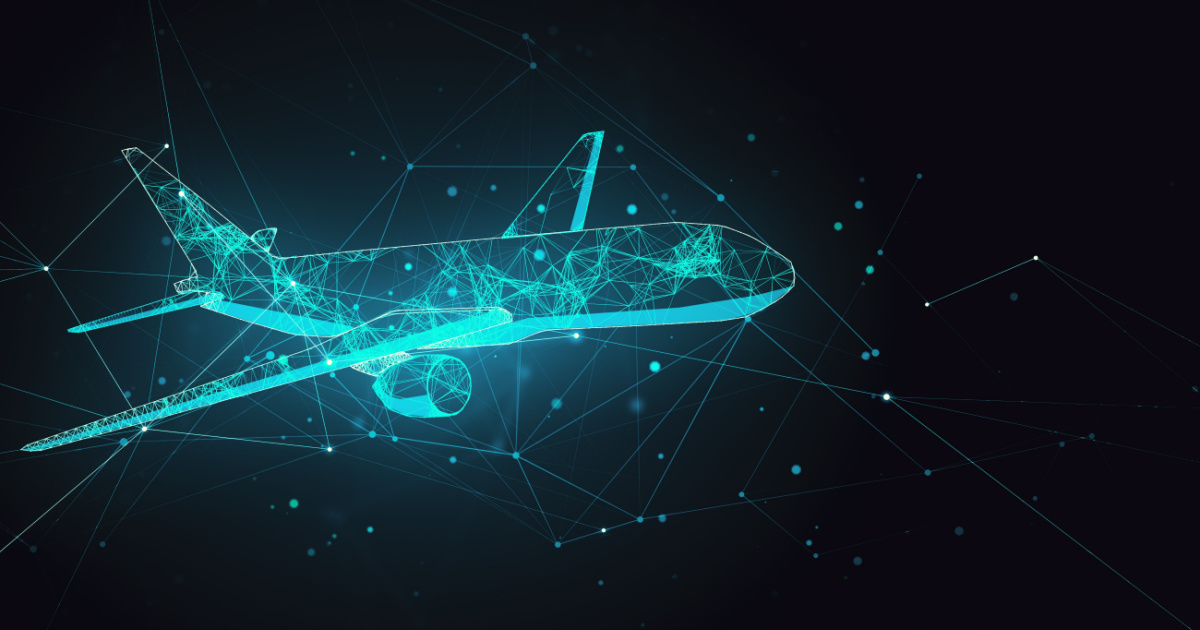How Artificial Intelligence is Transforming the Aviation Industry

There’s nothing artificial about artificial intelligence (AI). In fact, this technology is playing a crucial role in the aviation industry as airlines are investing in AI to help them become more efficient and competitive.
From predicting flight delays to machine-learning technology, the use of AI is quickly becoming a real game changer in the aviation industry. In fact, the value of the global artificial intelligence market increased dramatically—from $152.4 million in 2018 to a projected figure of $2,222.5 million by 2025. What is driving this impressive upward trend? Let’s take a closer look.
Fleet and operations management
AI-powered systems have the potential to help aviation companies and operators lower their operating costs and overhead by optimizing their fleets and operations. Swiss International Air Lines and Lufthansa, for example, have reportedly had impressive results in their experience from using AI in their respective operations. Having applied AI technology for the purpose of improving efficiency, Swiss International Air Lines saved $5.4 million last year and saw a boost in optimization efficiency for more than half its flights. Lufthansa, on the other hand, is using AI to more accurately forecast wind patterns that blow from the northeast to southwest Switzerland. By helping to better predict wind patterns, the airline had a 40 percent improvement in accuracy, which in turn is helping with flight delays and cancellations at Zurich Airport.
Delta Air Lines, American Airlines and JetBlue are investing in AI to optimize their respective operations.
Here are some of the ways AI is being used by airlines to increase efficiency and save money:
- Predicting flight delays—Although there are a variety of factors that can impact flight delays, such as weather conditions and operations at other airports, applying predictive analytics can play a role in analyzing real-time data to help predict delayed flights, update departure times and even rebook customers’ flights.
- Managing fuel consumption and emissions—AI technology helps to optimize flight plans to minimize fuel burn by avoiding unfavorable weather or traffic conditions.
- Pricing optimization and airline revenue management—Airlines lose money from having to fly half-empty planes. Pricing optimization uses machine-learning algorithms to search for ways to boost sales revenue by ensuring that flights are optimally booked, while also reducing the risk of overbooking.
- Automating inventory management—AI algorithms help to analyze usage patterns and maintenance schedules so spare parts are available when needed, reducing inventory costs.
- Identifying potential aircraft malfunctions—Predictive maintenance can help identify potential aircraft failures before they happen, which in turn can lead to lower maintenance costs and flight disruptions.
- Streamlining airport check-ins and baggage procedures—Facial recognition technology powered by AI can expedite check-ins, immigration processes and baggage handling operations which can lead to a reduction in labor costs and greater efficiency.
- Optimizing crew scheduling—Planning a crew roster takes into account several factors such as number of flights, number of standby crew, vacation schedules, transfers, layovers and rest requirements. Machine learning algorithms can automate this process by looking at historical data to optimize crew rosters.
- Streamlining repair and assembly of parts—Maintenance technicians and aircraft manufacturers can improve repair and assembly processes and engineers can expedite design/certification of products by using AI software and robots—including ChatGPT.
Customer service
AI is making great strides in customer satisfaction and customer retention. There’s no denying that delays and cancellations can make any trip begin on a sour note. Even the most loyal customers may rethink booking on their favorite airline the next time they travel. By utilizing AI, airlines are improving their customer flight experience by providing personalized service to their customers.
Here are some examples of how AI is improving customer service:
- Recommending travel itineraries.
- Providing real-time information about flight status and delays.
- AI chatbots to answer customer questions and resolve issues quickly.
- Flight route optimization lowers operational costs, which then leads to higher customer retention.
The human factor
For some, the fear of AI or robots taking over their jobs is a genuine concern. The reality is that while AI may change the way we work, human perception and intellect are still needed—especially for highly intellectual property that requires a relationship between machines and humans. People are still needed to run and monitor AI systems. AI may even have the potential to create new jobs in the aviation industry, handling some of the responsibilities outlined below.
- Maintaining AI systems for aircraft and ground operations.
- Developing algorithms.
- Ensuring that AI is being used responsibly and ethically.
Landing an aviation career begins with a Vaughn degree
Looking to pursue a degree in aviation? Now is the time to get started. Were you aware that the projected need for aviation personnel will top nearly 2.3 million over the next 20 years? Whether you’re passion is to become a computer engineer, pilot, air traffic controller, aviation maintenance technician or even work in airport operations, Vaughn College has degree and certificate programs that can help launch your career. Apply today!

